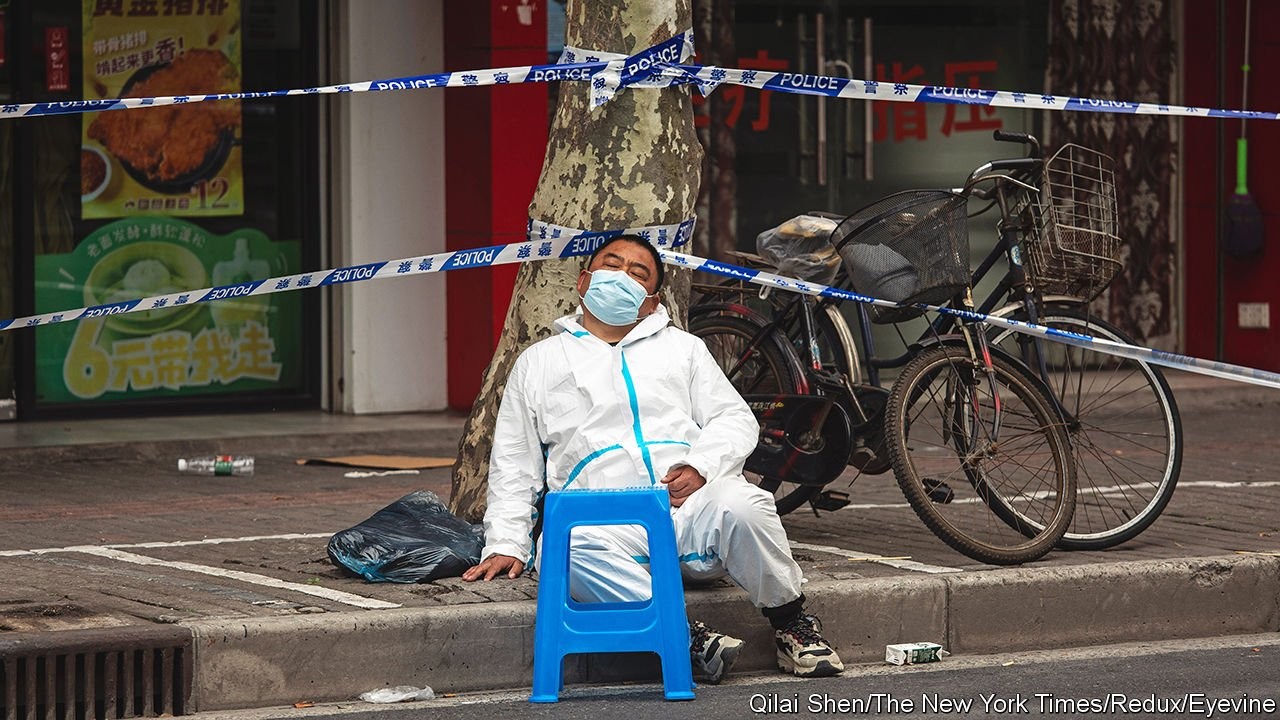Economic hit in China amid COVID-19 hit
Beijing, China:
The warning comes from no less a person than Chinese Premier Li Keqiang. This is the third warning he has issued in a week. China will study and adopt stronger economic policies as needed to support the economy, he said. Global economic think tanks are unanimous in saying that China faces a serious recession because of the lockdowns.
The concern within the echelons of the Chinese government was first heard on April 6 when Premier Li Keqiang presided over a State Council executive meeting that took two key decisions, “to increase government support for ‘sectors under special hardship’ by deferring pension insurance premiums, and increase unemployment insurance support and job training; and increase support for the real economy by adopting the timely use of monetary policy tools”.
The State Council executive meeting clearly warned of “further increases in new downward pressures” facing the Chinese economy. The meeting called for prioritizing “stable growth (achieving growth while maintaining economic and social stability)”.
The message was that the economy cannot be allowed to get hit because social unrest needs to be avoided at all costs. The government has also decided to allow local governments to increase the rebate on unemployment insurance for micro, small and medium-sized enterprises from 60 to 90 percent.
Moreover, local governments can allocate four percent of their unemployment insurance fund balance for vocational skills training. However, this may prove too little to stop the economic slide. The lockdowns have stopped most economic activities in China.
Manufacturing has been greatly affected because of closure of factories. Ship owners, are desperately trying to divert their ships to other ports in China because Shanghai port’s warehouses are closed down.
The services sector has taken a hit. There is a slump in home sales. Car sales have come down by as much as 10 per cent. Supply chains of foreign companies stand disrupted. The comments of Premier Li in such an uncertain situation has worried the international community because such public admissions are rare.
The United States has ordered its non-emergency staff in its consulate in Shanghai to exit the city. CNN reports that as of date, at least 44 Chinese cities are under either a full or partial lockdown as authorities persist in trying to curb the spread of the highly transmissible Omicron variant.
Along with growing unrest of the people, there is growing criticism of the government’s Covid policies too. A senior health official came out saying that the Shanghai outbreak has “not been effectively contained”.
The Chinese leadership appears perturbed by this statement. And now, President Xi Jinping has asked the officials in the cities under lockdown to do all they can to stop the spread of the virus, but also ensure that the impact on the economy is minimal.
This is interpreted as the leadership’s concern that the fallout of the Zero Covid policy does not impact President Xi’s bid for a third term in power this October. However, the beleaguered leadership has more battles on its hands.
One, deaths of COVID patients are being reported. That is a sign that the infection is severe. This may force the government to implement the Zero COVID policy more severely. That will lead to the second problem — Stocks are running out in the cities under lockdown and, as CNN points out, “getting supplies across the country has become a steep challenge, with some expressways closed, and truck drivers ensnared in quarantine or at thousands of highway health checkpoints”.













